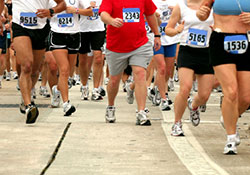Спортивные клубы как инструмент охраны здоровья

iStockphoto
This HEPA Europe working group is developing and implementing the Sports Clubs for Health (SCforH) and Health-Promoting Sports Clubs (HPSC) approaches. The purpose of the Sports Clubs for Health approach is to encourage sports clubs to invest more in using the health potential of their particular sport, especially by promoting health-enhancing sports activities within sports clubs. The Health-Promoting Sports Clubs approach is rooted in the settings-based approach, defining sports clubs as “a place or social context where people engage in daily activities in which environmental, organization and personal factors interact to affect health and well-being” (Nutbeam, 1998).
Sports clubs, the backbone of the sports movement, can make an important contribution at both individual and community level. Participation in organized sports encourages not only low levels of physical activity in Europe, but also provides important social, mental and physical health benefits. Moreover, organized sports can help enhance the social and economic capital of cities and nations. Taking health and HEPA promotion into account could help sports clubs to diversify their activities and welcome new participants.
The working group has produced a methodological basis and guidance for the SCforH programme. With support from three Erasmus+ Collaborative Partnership projects, the working group also focuses on the dissemination of the SCforH principles, on research on how sports club participation influences physical activity levels of adolescents, adults and older people, and on the development of a massive online course for sports professionals and stakeholders.
The working group also works on building the evidence base for health-promoting sports clubs, and on the development of interventions to help sports clubs become health-promoting settings. A literature review was published in 2019, and a measurement tool, the e-PROSCeSS scale, is under validation.
Three main objectives have been identified for this working group:
- to disseminate the SCforH/HPSC approaches
- to create and communicate on guidelines, measurement tools or intervention tool for the ScforH /HPSC approaches
- to work on a funding application for research to enhance the evidence base.
To join this activity, please contact HEPA Europe at hepaeurope@who.int.
Working group members and partners
The group is co-led by Aurelie Van Hoye, University of Lorraine, France, and Susanna Geidne, Örebro University, Sweden. The working group closely collaborates through, for example, the earlier and current Erasmus+ projects, with the European part of the Association For International Sport for All (TAFISA), the European Non-Governmental Sport Organisation (ENGSO), the International Sport and Culture Association (ISCA) and the European Federation for Company Sport (EFCS).



